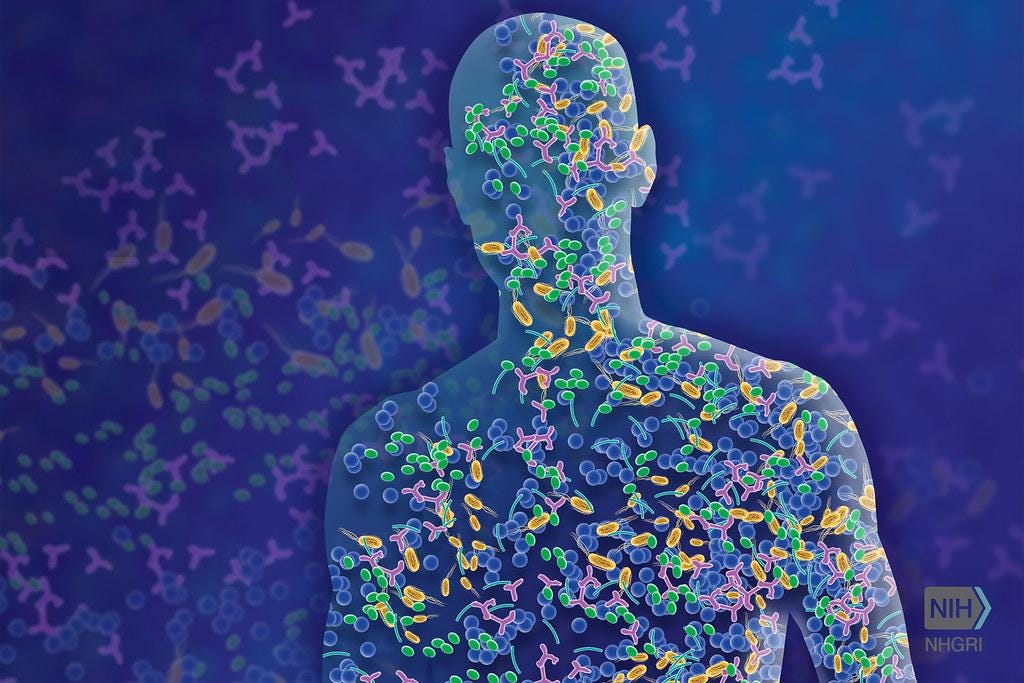The Human Microbiome
Written by Shrishti Harish
Our bodies are composed of millions of microorganisms such as bacteria, archaea, and protists. When I talk about this with people, they’re often surprised because they are stigmatized as harmful and dangerous. While that’s not entirely wrong, microorganisms are generally beneficial to our bodies, with only a few that are pathogenic. This article discusses the important roles microbiomes play in the human body.
The human microbiome is the collection of microorganisms that reside in the human body. This includes bacteria, archaea, viruses, eukaryotes, and fungi that inhabit various body sites such as the skin, gastrointestinal tract, oral cavity, urogenital tract, and respiratory tract. The ratio of microorganisms to cells is about 1:3. This growing network assists in supporting the immune system, and breakdown of food, and prevents colonization of the gut from harmful bacteria.
When it comes to digestion, the microbiota helps break down complex carbohydrates like starch and fibers with digestive enzymes like cellulase and amylase. Gut bacteria ferment dietary fibers into simpler compounds and produce a beneficial byproduct called SCFAs (short-chain fatty acids). Along with this, certain bacteria can synthesize vitamins and amino acids. This includes the essential Vitamins B and K.
In addition to aiding digestion, the human microbiome plays a crucial role in the immune system. Gut bacteria stimulate the production of regulatory T cells which maintains immune tolerance and prevents autoimmune responses. Exposure to diverse microbial communities can contribute to the immune system’s functionality. Furthermore, the microbiome excites the production of mucus and forms a protective layer over the gut lining, preventing pathogen invasion.
The next time you think about microorganisms, remember their pivotal role in improving your health. The symbiotic relationship we have with the microbes is essential for sustaining a healthy life.
Written by Shrishti Harish from MEDILOQUY


